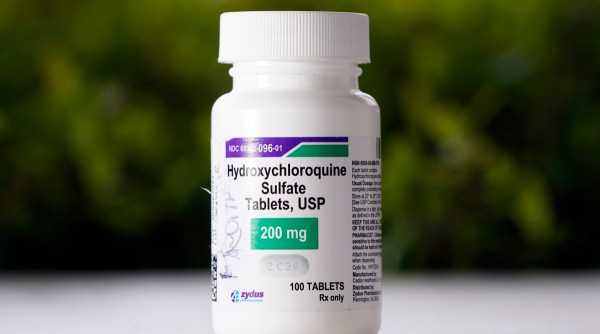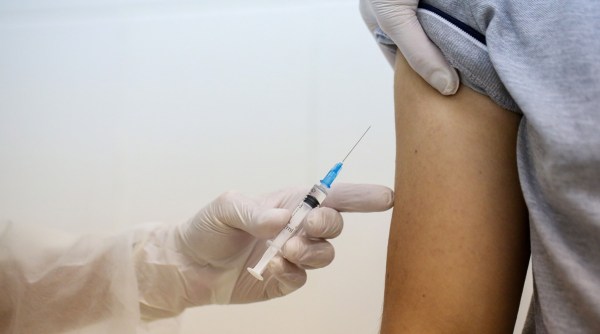, Anuradha Mascarenhas
| New Delhi, Pune |
Updated: October 17, 2020 10:18:58 am
Among the treatments in the trial, remdesivir is the most widely sought after. (AP Photo)
The World Health Organization (WHO) on Thursday made available interim results from the Solidarity Therapeutics Trial — a large-scale global trial studying the effectiveness of various repurposed therapies in Covid-19 treatment. The findings put a dampener on expectations from these therapies — including remdesivir, once seen as promising.
What is the Solidarity Trial?
The world’s “largest” multinational human trials on Covid-19 therapeutics, it was initiated by WHO and its partners in March to help find an effective treatment for Covid-19. It covers four repurposed drugs or drug combinations — remdesivir, hydroxychloroquine, lopinavir/ritonavir and interferon (in combination with rotinavir and lopinavir).
The study spans over 400 hospitals in more than 30 countries and looks into the effects of these treatments on various indicators, including their ability to prevent deaths and shorten hospital stays. The trial involved more than 11,300 participants.
The main aim was to help determine whether any of these repurposed therapies could at least moderately affect in-hospital mortality, and whether any effects differed between moderate and severe disease, said Dr Sheela Godbole, national coordinator of the Solidarity Trial in India. The initiative included 26 trials in parts of India with a high burden of cases. As of October 15, 937 hospitalised Covid patients were participating, Dr Godbole said.
What have the trials found?
None of the drugs was able to prove benefits across the parameters studied, especially in reducing mortality among hospitalised patients. The interim results, made available on a pre-print server, said these drugs had “little or no effect” on hospitalised Covid-19 patients “as indicated by overall mortality, initiation of ventilation and duration of hospital stay.
Drugs like hyrdoxychloroquine and lopinavir, in fact, had already been dropped over the course of the last six months for not showing much promise.
Also read | Why WHO vs Gilead on remdesivir matters
What are the findings on remdesivir?
“The mortality findings contain most of the randomized evidence on Remdesivir and Interferon, and are consistent with meta-analyses of mortality in all major trials,” the paper stated. Interferon was dropped from the trial on Friday.
The findings struck a nerve with American biopharmaceutical firm Gilead Sciences, which developed and patented remdesivir. In a statement, it said the emerging data “appear inconsistent” with the “more robust” evidence from “multiple” other studies on remdesivir’s clinical benefits that have been published in peer-reviewed journals. It said at least three randomised, controlled clinical trials have demonstrated remdesivir’s “benefits”.
Other experts have questioned the findings of the trials cited by Gilead Sciences. Dr Srinath Reddy, president of the Public Health Foundation of India and a member of the executive group of the Solidarity Trial’s steering committee, referred to a trial on over 1,000 patients in the US. “The numbers were relatively small for a clinical trial — and it turned out that the remdesivir group had better prognostic indicators than the control arm. So, in a sense, we can’t say time to recovery was because of remdesivir and not due to the other factors.
“Personal experiences are valuable. However, that does not help to compare in the clinical setting. The Solidarity Trial has commented on the value of remdesivir in hospitalised patients,” said Dr Soumya Swaminathan, WHO Chief Scientist.
📣 Click to follow Express Explained on Telegram
 A bottle of hydroxychloroquine tablets in Texas City, Texas. (AP Photo/David J. Phillip, File)
A bottle of hydroxychloroquine tablets in Texas City, Texas. (AP Photo/David J. Phillip, File)
To what extent have these drugs been used in India?
While India stopped use of combinations like lopinavir/ritonavir early into the pandemic, remdesivir, hydroxychloroquine and interferon combinations are still used as part of the Covid-19 treatment regimen based on the severity of illness.
Remdesivir, especially, has been heavily sought after. The size of India’s remdesivir market was pegged at around Rs 121.29 crore in the 12 months ended September, in estimates by pharmaceutical market research firm AIOCD Awacs PharmaTrac. These calculations were based on data available for only four of the several remdesivir brands — Desrem (Mylan), Remdac (Zydus Cadila), Cipremi (Cipla) and Covifor (Hetero) — which means the market may be even larger.
With several new brands hitting the market, sales have risen. PharmaTrac’s data shows sales increasing nearly 96% between July and September for these four brands.
How much of a blow are these findings to those prescribing these drugs?
It depends on various governments, who will take a call on whether the evidence is convincing enough to remove these therapies from their clinical management protocols. Doctors who feel the drugs should be part of treatment may also take a call on how they will be used on a case-by-case basis.
“What the Solidarity Trial results tell me is that hydroxychloroquine in toxic doses is more or less out in hospitalised patients. As far as lopinavir and ritonavir are concerned, they’re already out. Interferon’s verdict is still not out and we will have to wait for more data, because the body responds to any viral infection by making interferon,” said Dr Shashank Joshi, Dean of the Indian College of Physicians.
 The Solidarity Trial involved more than 11,300 participants. (Bloomberg Photo: Andrey Rudakov, File)
The Solidarity Trial involved more than 11,300 participants. (Bloomberg Photo: Andrey Rudakov, File)
What about remdesivir?
“While the data on remdesivir is disappointing, we don’t know if this will be its death knell,” Dr Joshi said. “Remdesivir will definitely be under pressure to perform, and its indiscriminate use will stop, but it still might have a place in individualised care.
In any case, there appears to be less excitement over remdesivir than earlier. “I don’t use remdesivir as much on my patients because, when there were issues of shortages with the drug earlier on, I had been prescribing medication like favipiravir and tocilizumab that also performed really well,” said a Delhi-based doctor.
“Now, there appears to be more stringent protocols, procedures and a little bit less anxiety (about how to manage Covid-19) in the last about two months or three months,” said Dr Om Srivastava, who practises in Mumbai.
“What the trial has concluded is that there may not be any survival benefit by giving remdesivir and that is a conclusion based on this interim data. I think we will still need to wait and see,” said Dr Srivastava.
“I think that remdesivir works in a way that, if you were able to give it at the right time, then it will shorten the total amount of virus shedding by about two days, sometimes, three days. I think that’s a huge advantage when you’ve got someone on an ICU who is likely to go on a ventilator. So I don’t think that remdesivir is redundant,” he said.
What now for Covid-19 therapeutics, pending a vaccine?
The findings don’t necessarily impact the use of other drugs and assisted therapies that have been proven to help reduce deaths and improve clinical outcomes, including oxygen and steroids like dexamethasone, according to experts. Newer therapies like antibody cocktails may also be in focus as part of the Solidarity Trial going forward.
“We are continuing with the Solidarity Trial and looking at immuno modulators like repurposed anti-cancer drugs and monoclonal antibodies,” said Dr Swaminathan.
This article first appeared in the print edition on October 17, 2020 under the title ‘The Solidarity Trial dampener’.
📣 The Indian Express is now on Telegram. Click here to join our channel (@indianexpress) and stay updated with the latest headlines
For all the latest Explained News, download Indian Express App.
© The Indian Express (P) Ltd